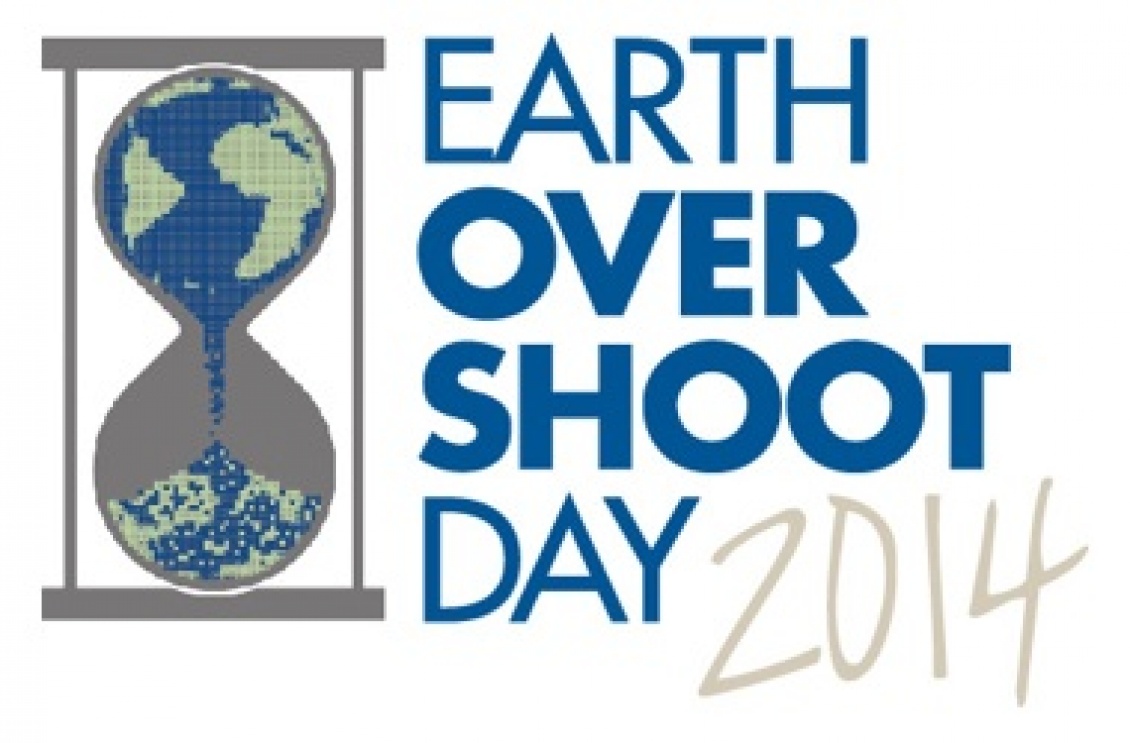In the Red
What does it mean to be unsustainable? I means something can’t continue. We can’t continue to use of the planet’s resources faster than nature can reproduce them. That means the our whole planetary way of life will collapse. How soon? No one knows. Probably sooner than we think.
–John
From: Global Footprint Network
Subject: Earth Overshoot Day, 2014
Dear Friends of Global Footprint Network,
August 19th is Earth Overshoot Day 2014, the approximate date humanity’s annual demand on nature exceeds what the Earth can renew this year. In less than 8 months, we have demanded an amount of ecological resources and services equivalent to what Earth can regenerate for all of 2014.
On Earth Overshoot Day, humanity has exhausted nature’s budget for the year. For the rest of the year, we are drawing down our ecological assets. Ecological deficit spending is made possible by depleting stocks of fish, trees and other resources, and accumulating waste such as carbon dioxide in the atmosphere and oceans. Currently, the carbon Footprint is the largest portion of humanity’s Footprint — a result of emitting greenhouse gases faster than they can be absorbed by forests and oceans — and contributes significantly to humanity’s ecological overspending.
According to Global Footprint Network’s calculations, it would take more than 1.5 Earths to provide the biocapacity needed to support humanity’s current Ecological Footprint. Moderate population, energy and food projections suggest that humanity would require the biocapacity of three planets well before mid-century. This may be physically unfeasible.
Today, 86 percent of the world population lives in countries that demand more from nature than their own ecosystems can renew. These “ecological debtor” countries either deplete their own ecological resources or get them from elsewhere. Were Japan’s residents to consume ecological resources and services solely from within their country’s borders, they would demand 7 Japans. In other words, Japan’s Footprint is 7 times larger than its biocapacity. Similarly, it would take 4.3 Switzerlands to support Switzerland and 2.7 Egypts to support Egypt.
Not all countries demand more than their ecosystems can provide, but even the reserves of such “ecological creditor” nations like Brazil, Indonesia, and Sweden are shrinking over time. For these countries, the main challenge is to treat their natural assets as ever-more significant sources of wealth to be preserved and nurtured over the long term, as opposed to riches to be squandered for short-term profits.
It is possible to turn the tide. Global Footprint Network and its partners are supporting governments, financial institutions, and other organizations around the globe in making decisions aligned with ecological reality.
Earth Overshoot Day is a valuable opportunity to raise awareness about humanity’s ecological resource overuse. Please help us promote Earth Overshoot Day on your website, in your newsletters, with friends, and on your social media channels, using the hashtag #oShoot and our Twitter handle @EndOvershoot. You can show your support by changing your Facebook profile for one day to our Earth Overshoot hourglass included here and by following us on Facebook and our new Instagram account, GlobalFootprintNetwork.
We are excited about various activities that partner organizations around the world are hosting to commemorate Earth Overshoot Day. World Wildlife Fund-China is co-hosting an Earth Overshoot Day event called “The Green Millionaire” to engage young environmental leaders from top universities: Students answer questions and complete tasks to earn “green funds” to reduce the global Ecological Footprint.
Meanwhile, multiple events are being staged across Berlin. A German activist coalition is gathering at the World Clock in Alexanderplatz to call for politicians to consider planetary limits in their growth models. Later this month, performance artist Ellie Harrison will unveil a new performance in Berlin in honor of Earth Overshoot Day, using Segways to offer a comical critique of human ‘progress.’
Please share any plans you have to mark Earth Overshoot Day and let us know of any of any media coverage in the form of links to newspaper articles or broadcast reports. You can reach us at media@footprintnetwork.org.
Thank you for supporting Earth Overshoot Day!
